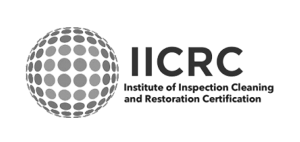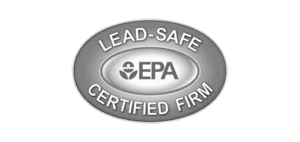As a homeowner, protecting your investment is a top priority. One of the most devastating events that can occur in your home is water damage. Water damage can lead to costly repairs, health hazards, and damage to personal belongings. It’s essential to take preventive measures to protect your home from water damage. In this section, we will discuss essential water damage prevention tips that every homeowner should know. By implementing these strategies, you can protect your home from costly water damage repairs and maintain it as a sanctuary.
Key Takeaways:
- Water damage can cause costly repairs and damage to personal belongings.
- Preventive measures can protect your home from water damage.
- Implementing essential water damage prevention tips can maintain your home as a sanctuary.
Understanding the Common Causes of Water Damage
Water damage can be caused by a variety of factors. It’s important to understand the common causes to prevent water damage from affecting your home. Here are some of the most frequent culprits:
| Common Causes of Water Damage | How It Happens |
|---|---|
| Plumbing Issues | Leaky pipes, burst pipes, toilets or sinks overflowing, backed up sewage lines. |
| Leaky Roofs | Damage to the roof or flashing, clogged gutters, ice dams, heavy rainfall, strong winds. |
| Faulty Appliances and Fixtures | Washing machines, dishwashers, refrigerators, water heaters, toilets, faucets, or any appliances or fixtures that have not been properly maintained. |
| Natural Disasters | Floods, hurricanes, tornadoes, and other severe weather events. |
Some of these causes are preventable, while others are not. However, taking proactive measures to safeguard your home against water damage is always a wise decision. Now that you are aware of the common causes of water damage, you can take steps to protect your home and prevent costly repairs.
Note: If you reside in an area prone to natural disasters, it’s important to have an emergency plan in place, including a plan for water damage restoration. Check with your insurance provider to ensure you have adequate coverage in the event of a disaster.
Safeguarding Your Home’s Plumbing System
Your home’s plumbing system is essential in providing clean water and disposing of waste. However, it can also be a significant source of water damage if not properly maintained. By safeguarding your plumbing system, you can prevent water damage and avoid costly repairs.
Regular Maintenance
Regular maintenance is crucial in ensuring your plumbing system operates efficiently and doesn’t develop leaks or blockages. Hire a licensed plumber to inspect your system annually, and make any necessary repairs or replacements.
Check for Leaks
Leaks can cause significant water damage and increase your water bill. Check for leaks regularly by inspecting exposed pipes, checking for water stains on walls or ceilings, and monitoring your water meter for any unexplained changes.
Insulate Pipes
Pipes that are not insulated are more likely to freeze and burst during cold weather, causing water damage. Insulate pipes in unheated areas, such as the attic or crawl space, to prevent this from happening.
Know the Location of Your Main Water Shut-Off Valve
In case of a plumbing emergency, it’s crucial to know where your main water shut-off valve is located. This will allow you to quickly turn off the water supply and prevent further damage.
In summary, safeguarding your home’s plumbing system is essential in preventing water damage. Regular maintenance, checking for leaks, insulating pipes, and knowing the location of your main water shut-off valve are crucial preventive measures that every homeowner should implement.
Protecting Your Home from Roof Leaks
Your roof is one of the most important components of your home. It protects you and your family from the elements and provides insulation to keep your home comfortable. However, a leaky roof can cause serious water damage if left unaddressed. Here are some tips on protecting your home from roof leaks:
Regular Roof Inspections
Regular roof inspections are crucial to identifying potential problems before they become major issues. Hire a professional inspector to examine your roof at least once a year, especially after severe weather events like heavy rain, snow, or hail.
Clean Gutters
Clogged gutters can cause water to back up onto your roof, leading to leaks. Clean your gutters regularly to prevent this from happening. If you’re not comfortable doing it yourself, hire a professional to clean them for you.
Repair Damaged Shingles
Broken, cracked, or missing shingles can leave your roof vulnerable to water damage. Have them repaired or replaced as soon as possible.
Adequate Attic Ventilation
Good attic ventilation is essential to preventing moisture buildup in your home. Make sure your attic is properly ventilated to prevent excess humidity and condensation from damaging your roof and walls.
By following these tips, you can protect your home from roof leaks and prevent costly water damage repairs. Don’t neglect your roof – it’s one of the most important investments you can make for your home.
Preventing Water Damage from Appliances and Fixtures
Regular maintenance of your appliances and fixtures is crucial in preventing water damage in your home. By implementing the following preventive measures, you can significantly reduce the risk of water-related disasters.
Checking Hoses and Connections
Inspect hoses and connections regularly for any signs of wear and tear. Replace them immediately if they are damaged or cracked. Use steel-braided hoses for your washing machine and dishwasher, as they are more durable and less likely to burst.
Maintaining Washing Machines and Dishwashers
Regularly clean the filters on your washing machine and dishwasher to prevent clogging and overflow. Check for any leaks or unusual noises during operation, and address them promptly.
Inspecting Toilets and Faucets
Leaky toilets and faucets can waste water and cause water damage. Inspect them regularly for leaks and replace any damaged parts. Install low-flow toilets and faucets to reduce water usage as well.
Installing Water Leak Detection Devices
A water leak detection device can alert you immediately if there is a leak in your home. Install one near your water heater, washing machine, and dishwasher for added protection.
Conclusion
In conclusion, protecting your home from water damage should be a top priority for every homeowner. By implementing the essential water damage prevention tips discussed in this article, you can safeguard your home and avoid costly repairs. Remember to stay vigilant and address any water-related issues promptly to prevent further damage.
Regular maintenance of your plumbing system, including checking for leaks and insulating pipes, can significantly reduce the risk of water damage. It’s also crucial to protect your home from roof leaks by conducting regular inspections, cleaning gutters, and repairing damaged shingles. Additionally, maintaining appliances and fixtures, such as washing machines and toilets, can prevent water damage caused by faulty connections and leaks.
By taking proactive steps to prevent water damage, you can maintain your home as a sanctuary and protect your investment. Stay informed and prepared, and don’t hesitate to seek professional help if needed. With these tips, you can achieve peace of mind and enjoy your home without worrying about water-related disasters.
FAQ
What are some essential water damage prevention tips for homeowners?
Some essential water damage prevention tips for homeowners include regular maintenance of your plumbing system, checking for leaks, insulating pipes, knowing the location of your main water shut-off valve, conducting regular roof inspections, cleaning gutters, repairing damaged shingles, maintaining appliances and fixtures, and installing water leak detection devices.
What are the common causes of water damage in homes?
The common causes of water damage in homes include plumbing issues, leaky roofs, faulty appliances, and natural disasters. Understanding these causes can help homeowners take proactive measures to prevent water damage.
How can I safeguard my home’s plumbing system to prevent water damage?
To safeguard your home’s plumbing system, you should perform regular maintenance, check for leaks, insulate pipes in colder regions, and know the location of your main water shut-off valve. These steps can help prevent water damage from plumbing issues.
How can I protect my home from roof leaks?
Protecting your home from roof leaks involves regular roof inspections, cleaning gutters to ensure proper water drainage, repairing damaged shingles promptly, and ensuring adequate attic ventilation. By taking these measures, you can minimize the risk of water damage caused by a leaky roof.
What preventive measures can I take to prevent water damage from appliances and fixtures?
To prevent water damage from appliances and fixtures, it is important to regularly check hoses and connections, maintain washing machines and dishwashers according to manufacturer guidelines, inspect toilets and faucets for any signs of leaks or malfunctions, and consider installing water leak detection devices for early detection of potential issues.









